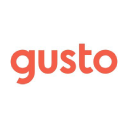How We Created A $15K/Month Equity Crowdfunding Platform To Invest In Startups
Hello! Who are you and what business did you start?
I’m Jason Crystal, co-founder of Miventure. My partner Luiggi Pera and I founded Miventure because we believe anyone should be able to invest in early-stage startups to support the people and ideas they believe in.
Our main product is our equity crowdfunding mobile app, which’s available on IOS and Android by visiting. At a marketplace place, our customers are both founders and investors. We have 7 campaigns active on the platform right now with over $500,000 in funding capacity since launching about a month ago and there are over 2,000 potential investors that have signed up so far.

What's your backstory and how did you come up with the idea?
We’ve both been working in and on startups and love the startup ecosystem. There’s something...

















